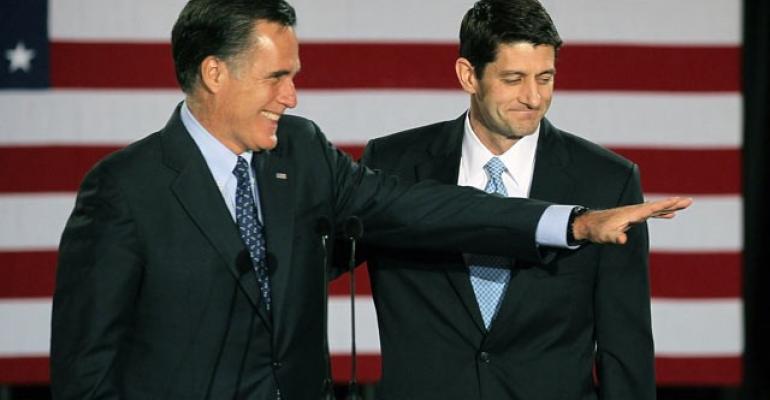 Republican presidential candidate Mitt Romney has been outspoken about his dislike for Dodd-Frank reform, stating blatantly on his website that he’ll repeal Dodd-Frank and replace it with a “streamlined, modern regulatory framework” (whatever that means). But his new running mate, Paul Ryan, has a different perspective.
Republican presidential candidate Mitt Romney has been outspoken about his dislike for Dodd-Frank reform, stating blatantly on his website that he’ll repeal Dodd-Frank and replace it with a “streamlined, modern regulatory framework” (whatever that means). But his new running mate, Paul Ryan, has a different perspective.
According to a POLITICO story, Ryan does want to repeal Dodd-Frank as a whole, but he has voiced support of the Glass-Steagall Act and the Volcker Rule, which would ban proprietary trading. Of course, Ryan’s stance on Wall Street reform would affect the regulation of banks, not financial advisor firms, but it makes me wonder what other types of regulation he could impose. Could his anti-Wall Street tendencies push into the financial services sector? From POLITICO:
The difference in Romney’s and Ryan’s views on how big banks should be regulated highlights a political tension within the GOP between establishment Republicans who are eager to cater to big banks and tea party lawmakers who have tapped into the public’s anger toward the federal bailout of too-big-to-fail institutions.In an effort to contrast himself from President Barack Obama, whose support from Wall Street donors has dwindled significantly this cycle, Romney has criticized financial regulations implemented by the current administration as being too burdensome on the financial sector.
Ryan, on the other hand, has appealed more to the recent wave of populist, anti-Wall Street sentiment that’s swept across the conservative base. He has excused his vote for the TARP bailout of Wall Street four years ago as a necessary evil to avoid a total government takeover of the financial system and hinted that there should be measures to control just how big big banks can get.
In my personal opinion, Ryan was a bad choice for Romney’s campaign. His far-right-leaning perspective and tea party association will likely turn middle-leaning Democrats toward Obama. As we all know, many Democrats who voted for Obama in the last election, have considered supporting Romney, who’s moderate. But throw Ryan in the mix, and Romney loses that which he had going for him, at least in that respect.
Do you Romney’s choice of Ryan could be good or bad for financial advisors?


